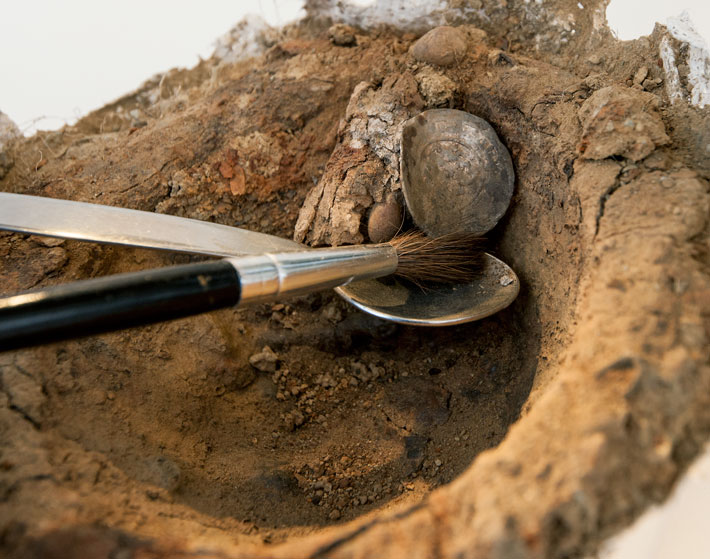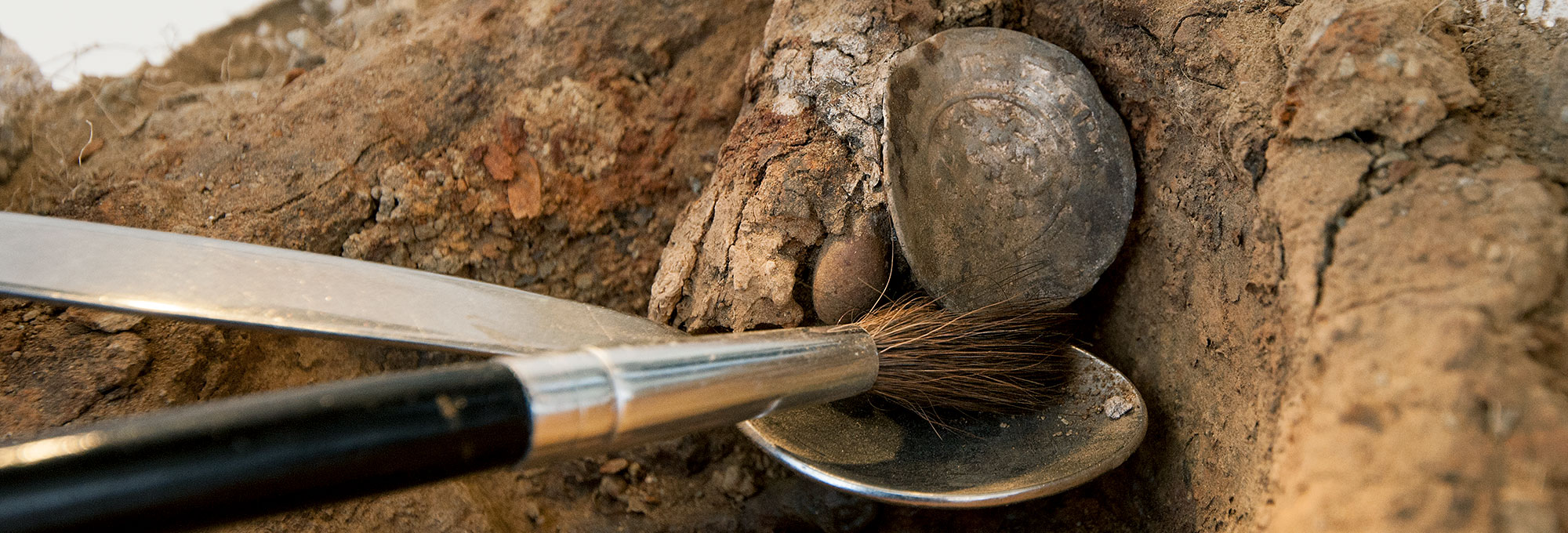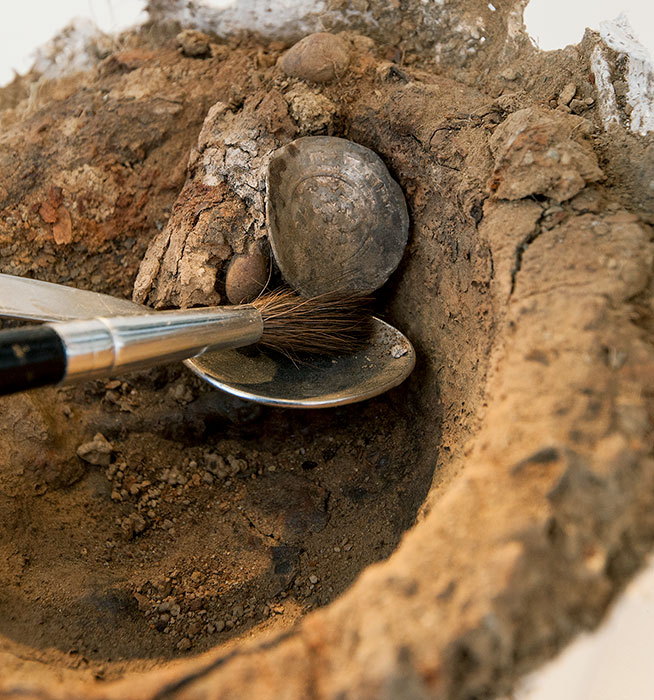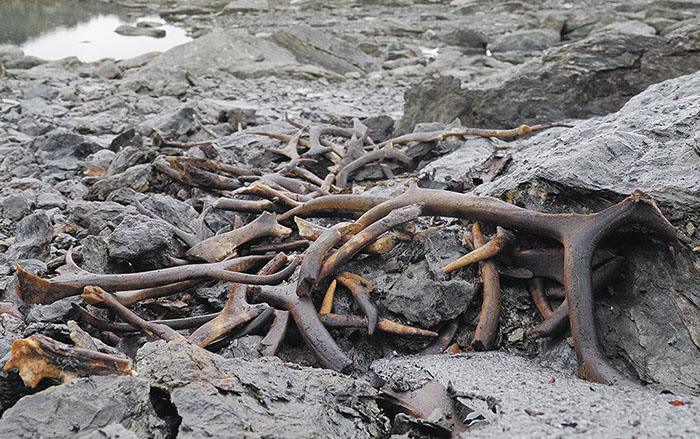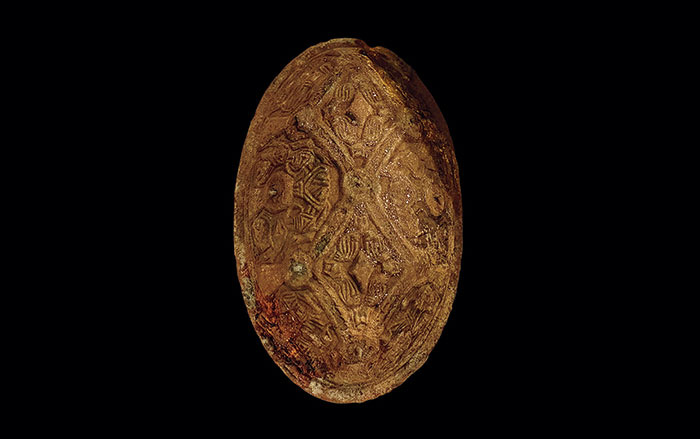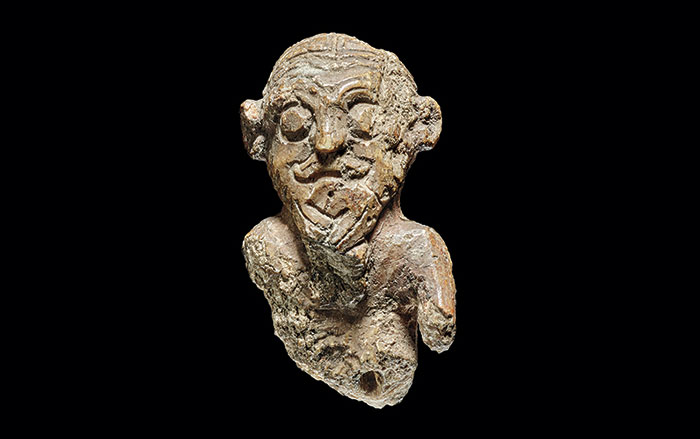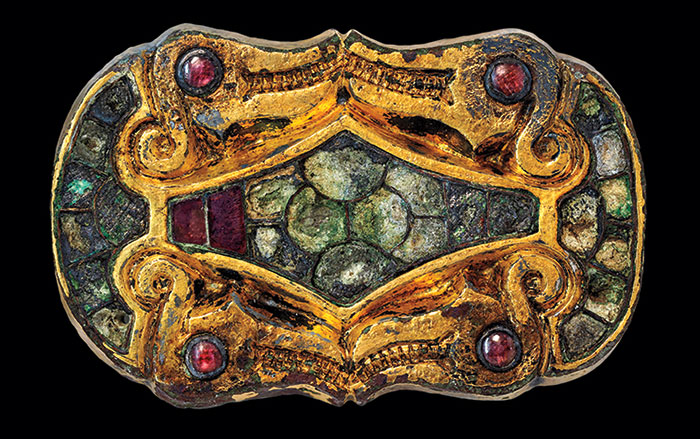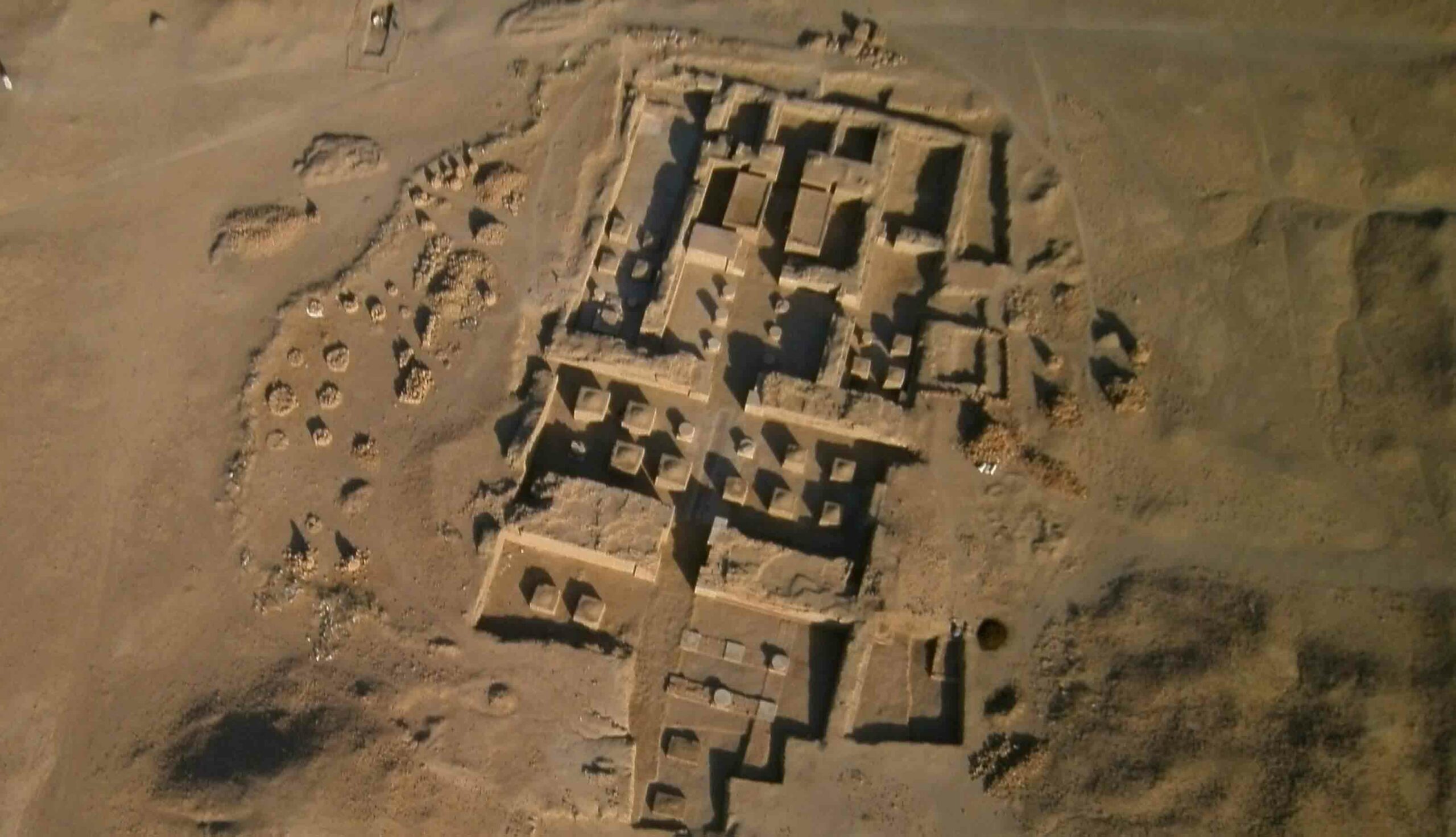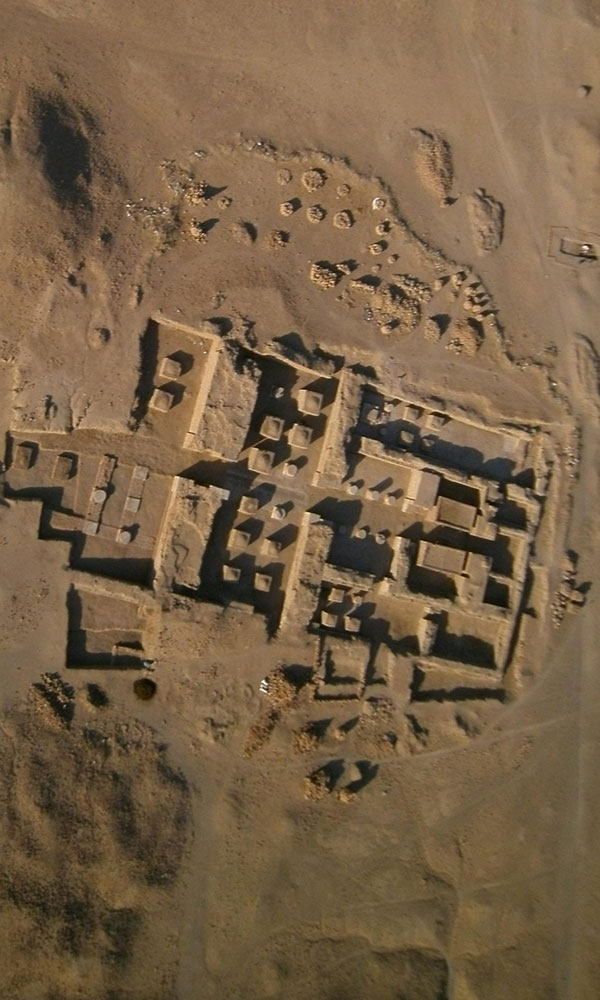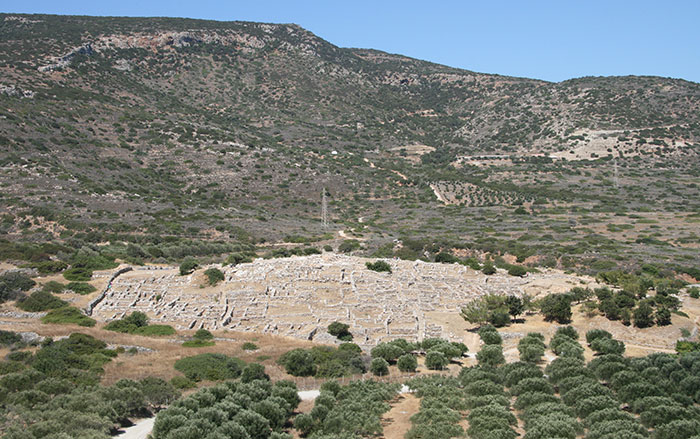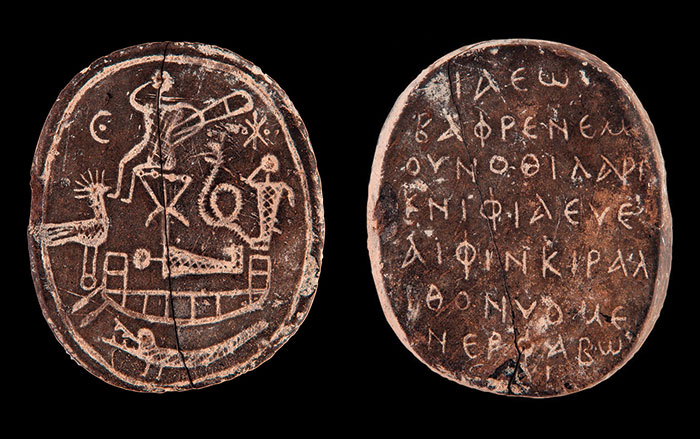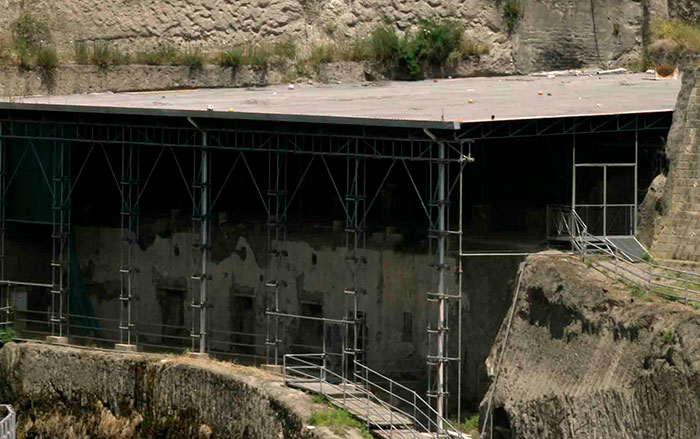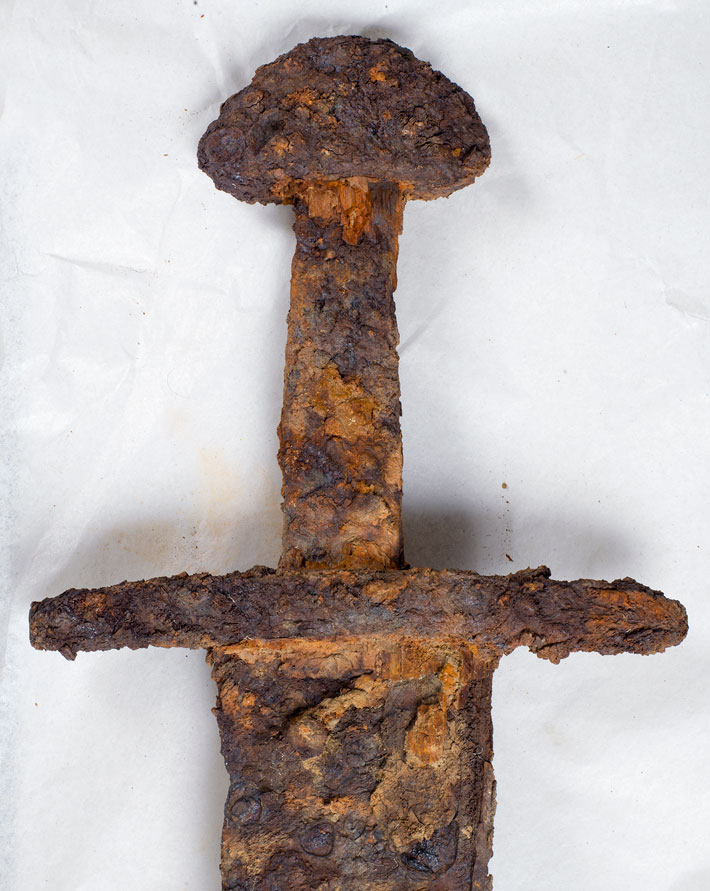
Last year, the discovery of an ax head on a mountaintop overlooking Norway’s Trondheim Fjord led archaeologists to a tenth-century Viking grave. Though they found no remains, the team recovered a sword and a shield boss. The discovery seemed routine, until the boss was X-rayed. “We could see there was stuff in there,” says archaeologist Ingrid Ystgaard of the Norwegian University Science and Technology’s Museum of Natural History and Archaeology. It turned out to contain a leather purse holding Islamic silver coins that were minted in what is now Iraq, along with agates and a small lead weight. “I’ve never seen anything like it,” says Ystgaard. “It’s extremely rare to find coins in Viking burials, and so far as I know, none have ever been found in a shield boss.”
Ystgaard points out that Vikings were known to travel as far as Constantinople, and the agates and coins could have been obtained through either trading or raiding. Extensive marks on the sword and shield boss show that they had been used in combat, but the lead weight secreted inside suggests the warrior may have at least occasionally played the role of merchant. “It’s a good reminder that they were not just raiders,” says Ystgaard. “This man was likely a classic trader-warrior of the Viking Age.”
